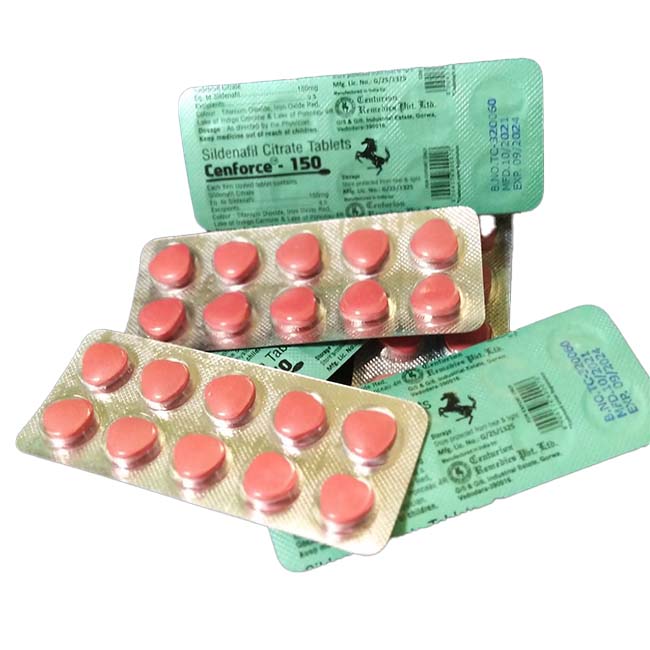Using expired protein powder can have potential risks and effects on your health. Protein powder, like any other food product, has a limited shelf life, indicated by the expiration date. Consuming expired protein powder can lead to various issues, including a loss of nutritional value, the risk of microbial growth, and digestive discomfort. It’s important to understand the potential risks associated with using expired protein powder to ensure your well-being and maximize the benefits of protein supplementation. In this article, we will delve into the potential risks and effects of using expired protein powder and provide valuable insights for a safer and healthier protein consumption experience.
Understanding expiration dates and proper storage of protein powder is of utmost importance to ensure your health and safety. The expiration date indicates the period during which the product is guaranteed to be fresh, potent, and safe to consume. Expired protein powder may lose its nutritional value and quality, making it less effective in meeting your dietary needs. Moreover, improper storage, such as exposure to heat, humidity, or moisture, can accelerate the deterioration process and increase the risk of microbial growth. By being mindful of expiration dates and following proper storage guidelines, you can maintain the integrity of your protein powder and safeguard your well-being.
Understanding Expiration Dates and Shelf Life
When it comes to food products, including protein powder, expiration dates, and shelf life play a crucial role in ensuring their quality and safety. Expiration dates are typically printed on the packaging and indicate the period during which the product is expected to remain fresh, potent, and safe to consume. It is important to note that expiration dates are based on the manufacturer’s assessment of the product’s quality and effectiveness.
Protein powder, like any other food product, has a limited shelf life. Over time, exposure to factors such as air, light, heat, and moisture can degrade the powder’s nutritional content and overall quality. As a result, taking expired protein powder may not provide the desired benefits and could pose potential risks to your health.
To make the most of your protein powder and ensure its freshness and effectiveness, it is crucial to understand the expiration dates and proper storage practices. Storing your protein powder in a cool, dry place, away from direct sunlight and moisture, can help prolong its shelf life. Additionally, sealing the container tightly after each use can prevent the entry of air and moisture, preserving the quality of the product.
By being mindful of expiration dates and practicing proper storage, you can maximize the nutritional value and safety of your protein powder, ensuring that it remains a beneficial and reliable part of your dietary routine.

Factors That Can Affect the Shelf Life of Protein Powder
Several factors can influence the shelf life of protein powder, potentially affecting its quality and effectiveness over time. It’s important to be aware of these factors to ensure you are consuming protein powder that is safe and retains its nutritional value. Here are some key factors that can impact the shelf life of protein powder:
- Exposure to Air: Protein powder can be sensitive to air exposure, which can lead to oxidation and degradation of the nutrients. Properly sealing the container after each use can help minimize air exposure and extend the shelf life of the powder.
- Moisture: Moisture is another factor that can adversely affect protein powder. Moisture can cause clumping, spoilage, and the growth of bacteria or mold. It is essential to store protein powder in a dry environment and avoid introducing moisture into the container.
- Heat and Light: Protein powder should be protected from excessive heat and light. High temperatures can accelerate the breakdown of nutrients and compromise the quality of the powder. Storing protein powder in a cool, dark place, away from direct sunlight or heat sources, can help maintain its integrity.
- Cross-Contamination: Cross-contamination can occur when using utensils or scoops that have come into contact with other substances, such as moisture or other foods. To prevent cross-contamination, it is advisable to use clean, dry utensils when handling protein powder and avoid storing it near other potential contaminants.
- Packaging Quality: The quality of the packaging plays a significant role in preserving the freshness of protein powder. Damaged or compromised packaging can lead to exposure to air, moisture, or contaminants, reducing the shelf life of the product. Ensure that the packaging is intact and undamaged before purchasing or using protein powder.
By considering these factors and following proper storage practices, you can help extend the shelf life of your protein powder and maintain its nutritional value for a longer period.
Potential Risks of Using Expired Protein Powder
Using expired protein powder can be risky and may have negative effects on your health. The nutritional value of the powder may deteriorate over time, and it can become a breeding ground for bacteria and other harmful microorganisms.
Loss of Nutritional Value: How Expired Protein Powder May Lose Its Effectiveness?
When protein powder reaches its expiration date, there is a potential loss of nutritional value. Over time, the essential amino acids in the powder can break down, reducing its effectiveness in supporting muscle growth and repair. Exposure to air, moisture, and heat can accelerate this process, further compromising the nutritional content. The vitamins and minerals present in the protein powder may also degrade, diminishing their beneficial effects on overall health.
Consuming expired protein powder may result in reduced protein synthesis and inadequate nutrient intake, which can hinder your fitness goals and overall well-being. To maximize the benefits of protein powder, it’s crucial to check the expiration date and ensure you are using fresh and properly stored products.
Microbial Growth: Increased Risk of Bacterial Contamination and Foodborne Illnesses
Using expired protein powder can increase the risk of microbial growth and bacterial contamination. As protein powder ages, its composition may change, creating an environment that is more conducive to the growth of harmful bacteria. This can include strains such as Salmonella or E. coli, which can cause foodborne illnesses and lead to digestive issues, nausea, vomiting, and other health complications. It is important to note that consuming contaminated protein powder can pose serious health risks, especially for individuals with weakened immune systems or underlying health conditions. To ensure your safety, it is essential to check the expiration date and discard any expired protein powder to avoid potential microbial contamination and associated health risks.
The Impact of Oxidation and Rancidity on Expired Protein Powder
When protein powder is exposed to air and moisture over time, it can undergo a process called oxidation, which leads to rancidity. This can significantly impact the quality and effectiveness of the protein powder. Oxidation occurs when the fats in the protein powder react with oxygen, causing them to break down and develop an unpleasant odor, taste, and texture. The presence of rancid protein powder can be detected through its off-putting smell and bitter or sour taste. Consuming protein powder that has gone rancid can lead to digestive discomfort and may not provide the desired nutritional benefits. Here are some ways to impact oxidation and rancidity on expired protein powder:
- Oxidation and rancidity occur when protein powder is exposed to air and moisture over time.
- This process leads to a breakdown of fats in the protein powder, resulting in an unpleasant odor, taste, and texture.
- Rancid protein powder may have a bitter or sour taste and can cause digestive discomfort.
- The nutritional value of protein powder is compromised when it becomes rancid.
- Proper storage in airtight containers and avoiding exposure to moisture can help prevent oxidation and rancidity.
- Regularly checking expiration dates and discarding expired protein powder is essential to avoid consuming rancid products.
Effects on Digestion and Absorption
When protein powder goes bad, it can have negative effects on digestion and absorption. The deterioration of the powder’s quality can lead to changes in its composition, making it more difficult for the body to break down and absorb the protein efficiently.
Digestive Discomfort: Possible Symptoms Such as Bloating, Gas, and Stomach Upset
Digestive discomfort is one of the potential risks associated with using expired protein powder. When protein powder goes bad, it may become harder to digest, leading to symptoms such as bloating, gas, and stomach upset. These digestive issues can occur due to the breakdown of proteins and the production of gas in the gastrointestinal tract. If you experience these symptoms after consuming expired protein powder, it is advisable to discontinue its use and consult with a healthcare professional if necessary.
- Bloating, gas, and stomach upset can occur when using expired protein powder.
- Digestive discomfort may be a result of the breakdown of proteins in expired protein powder.
- Pay attention to the expiration date of your protein powder to avoid digestive issues.
- Consult with a healthcare professional if you experience persistent digestive symptoms after consuming expired protein powder.
- Proper storage and handling of protein powder can help maintain its quality and reduce the risk of digestive discomfort.
How Expired Protein Powder May Hinder Nutrient Absorption in the Body?
When protein powder expires, its ability to support optimal nutrient absorption in the body may be compromised. Expired protein powder may undergo chemical changes that affect its composition, making it less bioavailable and difficult for the body to break down and utilize. As a result, the absorption of essential nutrients such as amino acids, vitamins, and minerals may be hindered. This can lead to a decreased efficiency in muscle repair and recovery, as well as an inadequate supply of vital nutrients for overall health. It is important to prioritize the use of fresh and unexpired protein powder to ensure optimal nutrient absorption and maximize the benefits of protein supplementation.
In addition to the potential hindrance in nutrient absorption, expired protein powder may also pose risks due to the degradation of its quality. Over time, the protein molecules in the powder may break down, leading to a decrease in protein integrity and efficacy. This can result in reduced amino acid content, which is crucial for muscle synthesis and repair. As a consequence, the desired benefits of taking protein powder, such as supporting muscle growth and recovery, may be compromised.
Allergic Reactions and Sensitivities
Individuals with allergies or sensitivities need to be cautious when it comes to expired protein powder. Over time, the protein molecules in the powder can undergo changes that might trigger allergic reactions or sensitivities in susceptible individuals. This is particularly important for those with known allergies to specific protein sources, such as dairy or soy.
Expired Protein Powder may Trigger Allergies in Sensitive Individuals
Expired protein powder carries an increased risk of allergenicity, potentially triggering allergic reactions in individuals with sensitivities. As protein powder ages, the protein molecules can undergo changes that make them more prone to causing allergic responses. This is especially concerning for those with known allergies to specific protein sources, such as dairy, soy, or nuts. Taking expired protein powder can heighten the risk of experiencing allergic symptoms, ranging from mild discomfort to severe reactions. These may include skin rashes, itching, swelling, respiratory difficulties, or gastrointestinal distress. If you have a history of allergies or sensitivities, it is crucial to be mindful of expiration dates and avoid using expired protein powder. It is advisable to consult with a healthcare professional or allergist to determine suitable alternatives and ensure your dietary choices align with your specific needs.
Cross-Contamination Concerns: Potential for Allergen Contamination During Expiration
During the expiration of protein powder, there is a potential risk of cross-contamination, which can lead to allergen contamination. This is especially concerning for individuals with allergies or sensitivities. Over time, protein powder can come into contact with allergenic substances present in the surrounding environment, such as gluten, nuts, dairy, or soy. Improper storage or proximity to other allergenic sources can increase the likelihood of cross-contamination occurring. Even small traces of allergens in expired protein powder can trigger allergic reactions in susceptible individuals. To minimize the risk of cross-contamination, it is crucial to handle and store protein powder correctly, keeping it separate from potential allergenic sources. Regularly checking expiration dates and promptly discarding expired protein powder is essential for maintaining a safe and allergen-free product. By being aware of cross-contamination concerns, individuals can make informed choices to protect their health and well-being.
Quality and Safety Considerations
When it comes to using protein powder, it’s crucial to prioritize quality and safety. Expired protein powder may experience changes in taste, texture, and overall quality, which can compromise its safety for consumption. Over time, the powder may become clumpy, develop an unpleasant odor, or show signs of spoilage, indicating a breakdown in its integrity.
Importance of Proper Storage: Tips for Storing Protein Powder to Maintain Its Quality
Proper storage of protein powder is essential for maintaining its quality and effectiveness. Here are some tips to help you store your protein powder correctly:
- Keep it in a cool, dry place: Moisture and heat can degrade the protein powder, so it’s best to store it in a cool and dry environment. Avoid storing it near the stove, dishwasher, or any other source of heat or humidity.
- Seal it tightly: Ensure that the protein powder container is tightly sealed after each use. This helps prevent air and moisture from entering, which can lead to oxidation and spoilage.
- Avoid exposure to light: Proteins are sensitive to light, so it’s advisable to store the powder in an opaque or dark-colored container. If the original packaging is transparent, consider transferring the powder to an airtight container that provides protection against light.
- Keep it away from strong odors: Protein powder can absorb odors from its surroundings, which may affect its flavor. Store it away from strong-smelling substances like spices, cleaning agents, or perfumes.
- Follow manufacturer instructions: Some protein powders may have specific storage instructions provided by the manufacturer. It’s important to read and follow these guidelines for optimal storage conditions.
By following these storage tips, you can help prolong the shelf life and maintain the quality of your protein powder, ensuring that it remains fresh and effective for your health and fitness goals.
Signs of Spoilage: How to Identify If Protein Powder Has Gone Bad?
It’s important to be able to identify signs of spoilage in protein powder to ensure your safety and prevent any potential health risks. Here are some common indicators that your protein powder may have gone bad:
- Strange odor: If your protein powder has a strong, unpleasant odor or smells rancid, it’s likely spoiled. Fresh protein powder should have a neutral or slightly sweet aroma.
- Off-taste: Spoiled protein powder may have a bitter or sour taste that is noticeably different from its original flavor. If it tastes unpleasant or has an unusual aftertaste, it’s best to discard it.
- Clumping or discoloration: Check the powder for clumps or changes in texture. If the powder appears clumpy, lumpy or has changed color significantly, it may be a sign of moisture or microbial contamination.
- Presence of pests: Inspect the protein powder container for any signs of problems like insects or rodents. If you notice any infestation, it’s best to dispose of the product immediately.
If you encounter any of these signs, it is recommended to err on the side of caution and discard the protein powder. Consuming spoiled protein powder can lead to digestive issues, food poisoning, or allergic reactions. Always prioritize your health and safety by using fresh and properly stored protein powder.
Safe Alternatives: Exploring Options for Replacing Expired Protein Powder
If you find yourself with expired protein powder or are concerned about its quality, there are safe alternatives available to meet your nutritional needs. Here are some options to consider:
- Fresh protein sources: Opt for whole food protein sources such as lean meats, poultry, fish, eggs, dairy products, legumes, nuts, and seeds. These natural sources of protein provide a wide range of essential nutrients and are not subject to expiration dates like processed powders.
- Plant-based protein powders: If you prefer the convenience of protein powder, consider trying plant-based alternatives such as pea protein, hemp protein, or rice protein. These options are often free from common allergens and can provide a similar protein boost without the risk of expiration or spoilage.
- Homemade protein shakes: Create your own protein-rich shakes using fresh ingredients. Blend together fruits, vegetables, yogurt, milk, or plant-based milk, and add a natural protein source like nut butter or Greek yogurt to enhance the protein content.
- Protein bars: Look for reputable brands that offer protein bars made with wholesome ingredients. Read the labels carefully to ensure they are gluten-free and meet your dietary needs.
By exploring these safe alternatives, you can continue to meet your protein requirements while avoiding the potential risks associated with expired protein powder. Remember to always prioritize quality, freshness, and proper storage to ensure the safety and effectiveness of your protein sources.
The Final Bottomline
In conclusion, using expired protein powder can pose potential risks and negative effects on your health. It may lead to loss of nutritional value, microbial growth, oxidation, digestive discomfort, reduced nutrient absorption, allergic reactions, cross-contamination concerns, and compromised quality and safety. To ensure your well-being, it’s important to understand expiration dates, properly store protein powder, and be aware of signs of spoilage. If you have expired protein powder or are concerned about its quality, consider safe alternatives such as fresh protein sources, plant-based protein powders, homemade protein shakes, and protein bars. Prioritizing quality and safety in your protein choices is crucial for maintaining a healthy lifestyle.
Frequently Ask Questions:
Can using expired protein powder make me sick?
Yes, expired protein powder can increase the risk of microbial growth and foodborne illnesses, potentially leading to digestive discomfort and other health issues.
How can I tell if my protein powder has expired?
Look for signs of spoilage such as changes in color, texture, or smell. Additionally, check the expiration date on the packaging to ensure it hasn’t passed.
Can expired protein powder still provide nutritional benefits?
Expired protein powder may lose its effectiveness and nutritional value over time, resulting in reduced protein content and potential nutrient degradation.
Are there any potential allergenic risks associated with using expired protein powder?
Yes, expired protein powder may have an increased risk of triggering allergies in individuals with sensitivities, as well as cross-contamination concerns that could lead to allergen exposure.
What are the alternatives to using expired protein powder?
Instead of using expired protein powder, consider fresh protein sources like lean meats, fish, eggs, dairy, or plant-based protein options such as legumes, tofu, or nut butter. Additionally, homemade protein shakes and protein bars can be safe and nutritious alternatives.







